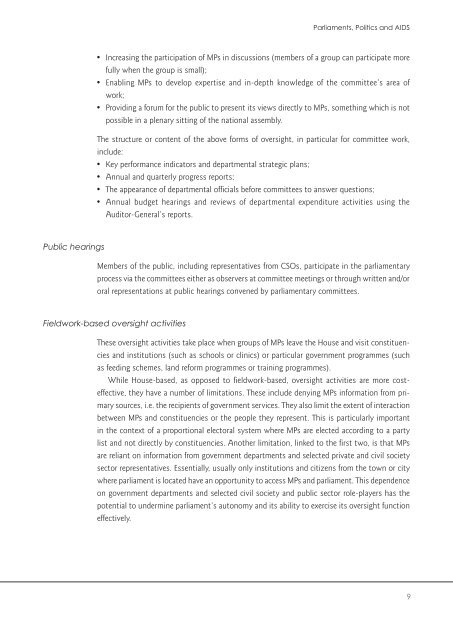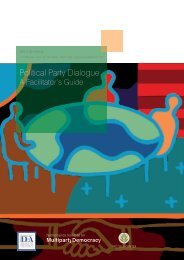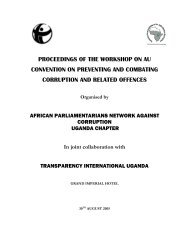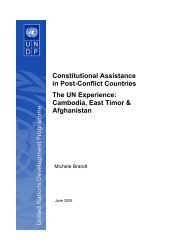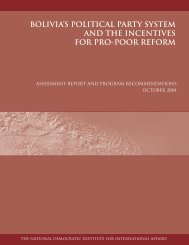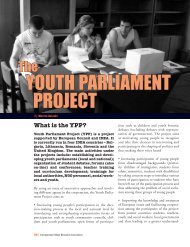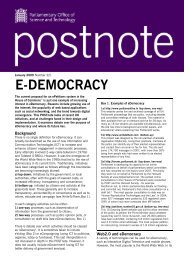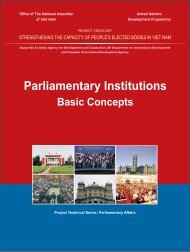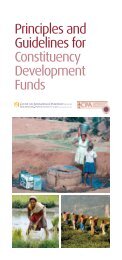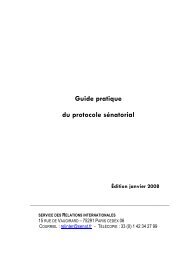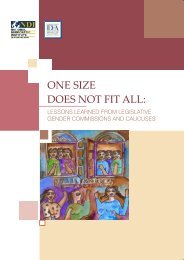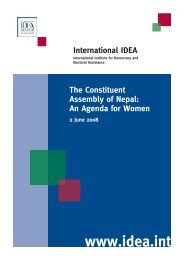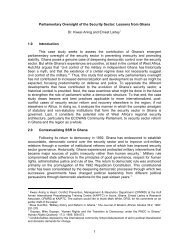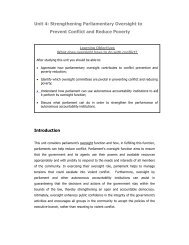Download PDF - Parliamentary Centre
Download PDF - Parliamentary Centre
Download PDF - Parliamentary Centre
- No tags were found...
Create successful ePaper yourself
Turn your PDF publications into a flip-book with our unique Google optimized e-Paper software.
Parliaments, Politics and AIDS• Increasing the participation of MPs in discussions (members of a group can participate morefully when the group is small);• Enabling MPs to develop expertise and in-depth knowledge of the committee’s area ofwork;• Providing a forum for the public to present its views directly to MPs, something which is notpossible in a plenary sitting of the national assembly.The structure or content of the above forms of oversight, in particular for committee work,include:• Key performance indicators and departmental strategic plans;• Annual and quarterly progress reports;• The appearance of departmental officials before committees to answer questions;• Annual budget hearings and reviews of departmental expenditure activities using theAuditor-General’s reports.Public hearingsMembers of the public, including representatives from CSOs, participate in the parliamentaryprocess via the committees either as observers at committee meetings or through written and/ororal representations at public hearings convened by parliamentary committees.Fieldwork-based oversight activitiesThese oversight activities take place when groups of MPs leave the House and visit constituenciesand institutions (such as schools or clinics) or particular government programmes (suchas feeding schemes, land reform programmes or training programmes).While House-based, as opposed to fieldwork-based, oversight activities are more costeffective,they have a number of limitations. These include denying MPs information from primarysources, i.e. the recipients of government services. They also limit the extent of interactionbetween MPs and constituencies or the people they represent. This is particularly importantin the context of a proportional electoral system where MPs are elected according to a partylist and not directly by constituencies. Another limitation, linked to the first two, is that MPsare reliant on information from government departments and selected private and civil societysector representatives. Essentially, usually only institutions and citizens from the town or citywhere parliament is located have an opportunity to access MPs and parliament. This dependenceon government departments and selected civil society and public sector role-players has thepotential to undermine parliament’s autonomy and its ability to exercise its oversight functioneffectively.


